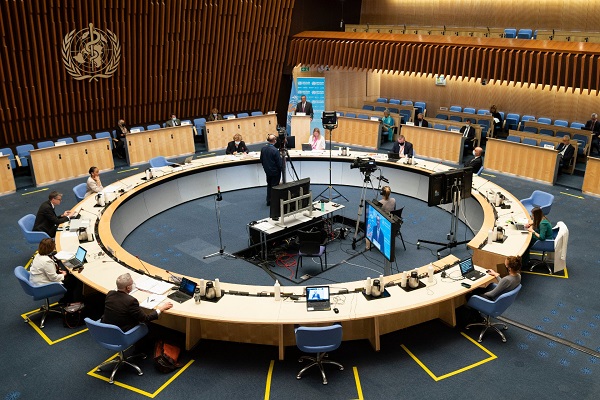
The absence of the United States from the 78th World Health Assembly (WHA) has raised serious concerns about the future of global health governance, as delegates from 193 member states gather at the World Health Organisation’s (WHO) highest decision-making body.
A provisional list of attendees released on Monday by WHO and made available to journalists, notably did not include a U.S. delegation – an omission that could mark the first time since WHO’s founding in 1948 that the U.S. has failed to attend the Assembly.
Observers say this absence comes at a particularly crucial time, as the assembly prepares to vote on the long-anticipated Pandemic Agreement, nearly three years in the making. The agreement is intended to strengthen global preparedness and cooperation in future pandemics.
Former WHO legal counsel, Gian Luca Burci described the U.S. absence as deeply symbolic and concerning. Speaking at a WHA preview session co-hosted by the Geneva Graduate Institute and the UN Foundation, Burci stated: “This is not just symbolic, it’s a significant retreat at a time when unity in global health is desperately needed.”
Adding to the gravity of the moment, China has sent what is believed to be its largest-ever delegation to the WHA, including over 180 officials, health experts and academics. The contrasting levels of engagement from two major world powers highlight a shifting balance in global health leadership.
Compounding the situation, WHO is grappling with major financial strain. Despite the formal process of U.S. withdrawal from WHO funding not taking effect until 2026, Washington has failed to pay its assessed dues of $260 million for 2024–2025. This shortfall has already forced WHO to slash $1.2 billion from its budget and consider a 20 per cent global reduction in staff.
Nonetheless, WHO officials remain hopeful. The agency’s chief scientist, Dr. Jeremy Farrar emphasised that this Assembly could be transformative. “We are at an inflection point. This is a time not just for concern, but for transformation. We must reform amid crisis,” he said.
Farrar’s comments reflect ongoing leadership restructuring within WHO, aimed at consolidating its work into four core divisions to eliminate duplication and improve operational efficiency.
In addition to the absence of the U.S., the broader Americas region has yet to commit to WHO’s new “investment round,” a voluntary funding mechanism intended to stabilise financing. This lack of commitment has drawn criticism from leading reform advocates.
Björn Kümmel of Germany, a lead negotiator on WHO reform, warned of a growing imbalance in global health financing. “There’s a complete mismatch between membership and contributions. Emerging economies must rise to the occasion,” he said.
Even if the Pandemic Agreement is adopted at the Assembly, its implementation depends on the resolution of pending issues, especially the pathogen access and benefit-sharing (PABS) mechanism, which is vital for equitable vaccine and treatment access during future health crises.
Still, despite the geopolitical fragmentation, experts see the ongoing negotiations as a hopeful sign. “At a time when multilateralism is questioned, the fact that 193 countries are moving toward a pandemic accord is remarkable. Hope and cooperation remain our most powerful tools,” Kümmel added.
As the Assembly continues through May 27, the absence of the U.S. – historically WHO’s largest donor – signals a critical shift in global health leadership and casts uncertainty over the future of international health solidarity.

